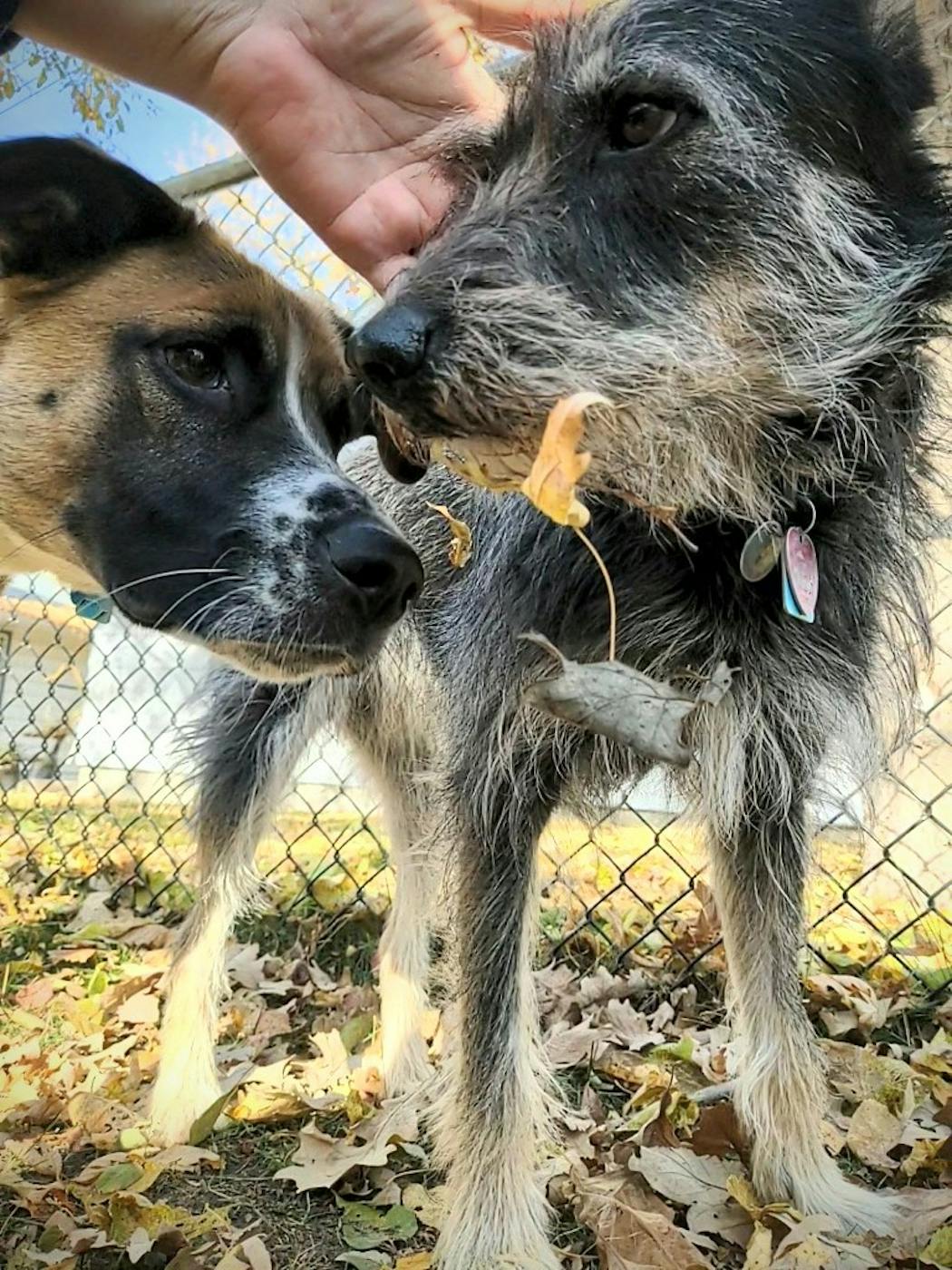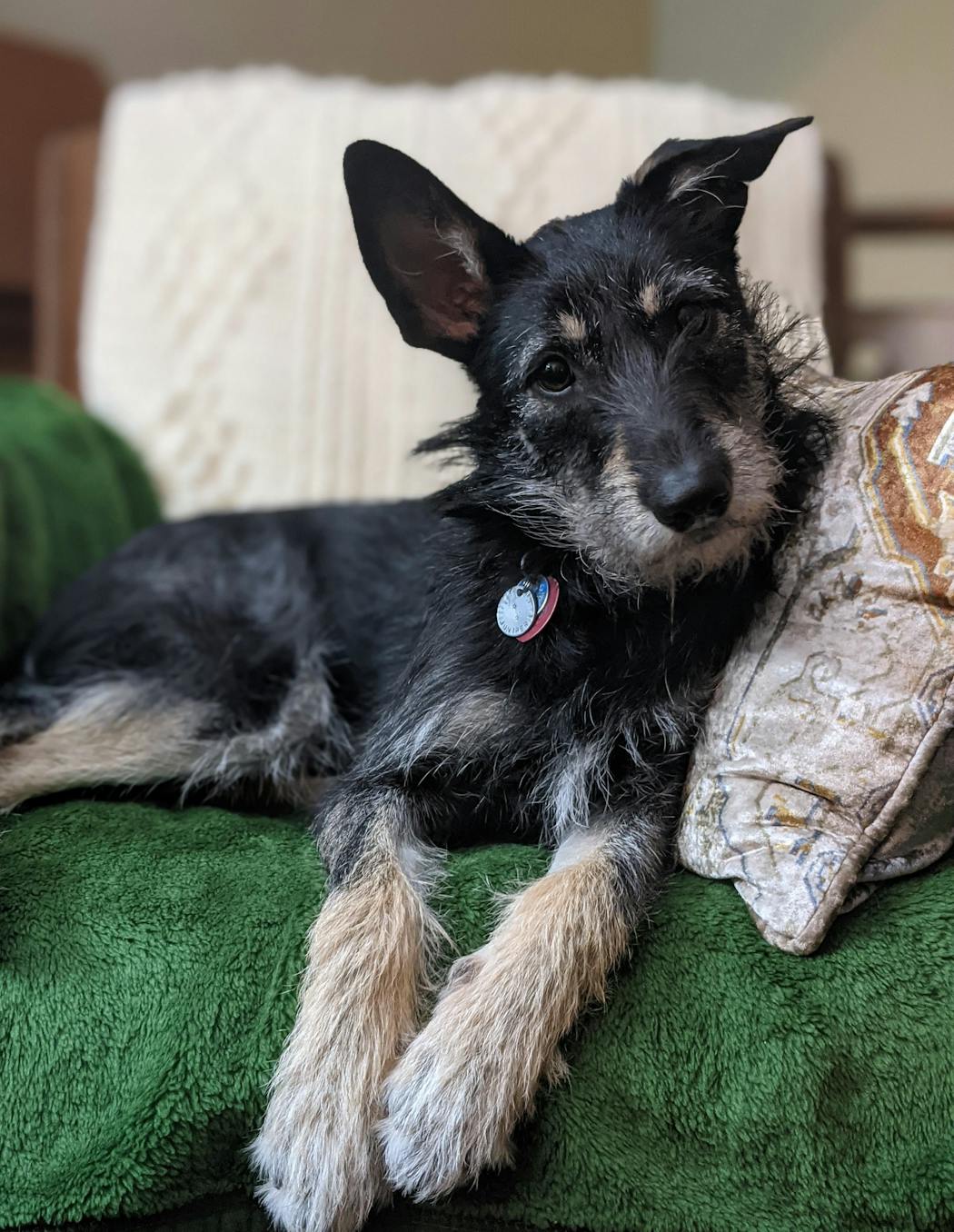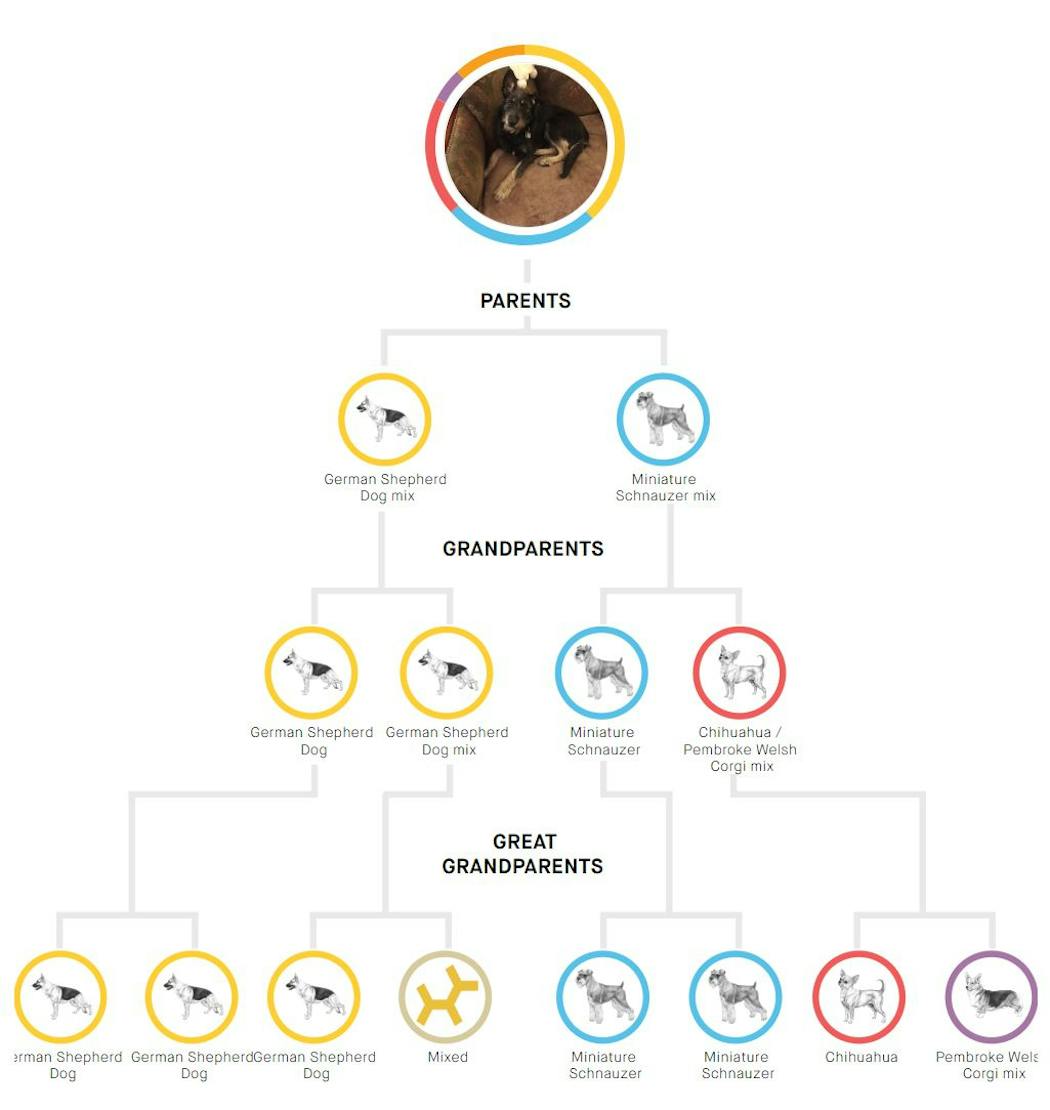I had expected surprises when I adopted Juniper, a scruffy eight-month-old mutt who was left outside a pet store in Texas.
And surprises I got.
She didn't like to pee while on a leash. She had an apparent craving for electrical cords. And whenever she got a drink, more water ended up on her face than in her belly. This meant that whenever she departed the bowl, she left a trail of dribbles and small pools of water on chin-height furniture like my coffee table.
This was all new to me. But I quickly learned that surprise puddles are just part of pet ownership when your dog has a beard.
Her snoot full of unkempt, wiry fur (which I later learned meant she was "furnished") is one of the things that drew me to adopt Juniper. I got her from the Minnesota-based Ruff Start Rescue, a nonprofit that uses a foster-based system to find homes for dogs from overfilled shelters in Texas and dump sites in South Dakota.
Ruff Start Rescue identified Juniper as a schnauzer and terrier mix. And that was a pretty good guess. But I just had to know more about the unique set of genes that tangled together to create this goofy, sweet pup. So I ordered a dog DNA test. (I chose Embark, probably because I appreciated the pun in the company's name, but there are other brands available.)
For about the same cost as a couple of large bags of dog food, I was able to untangle Juniper's genetics. The process was simple: Don't let her drink water, eat or share a toy with another dog for about 30 minutes, swab her mouth with what looks like a giant Q-tip for 30 seconds and then send away the saliva to be analyzed.
Within a few weeks, I had a trove of information about Juniper's breed makeup, ancestry and likely traits. The results showed her to be about 40% German shepherd, 25% miniature schnauzer, 20% Chihuahua and 5% Pembroke Welsh corgi. She was also about 10% "supermutt," which comes from inheriting genes from multiple generations of mixed-breed dogs.
This immediately helped make sense of Juniper's tendencies. German shepherds are loyal and smart dogs, and Chihuahuas are known to have huge personalities. This tracks with Juniper, whom I often call a diva. And miniature schnauzers, according to Embark, are "an alert and spirited breed with guard dog tendencies." So at least I can blame her genes when she starts barking (and won't stop barking) at the people and dogs and squirrels and shadows she sees outside the window.
Even more intriguing was the family tree which showed that one of Juniper's parents was likely a German shepherd that descended from other German shepherds — maybe a purebred from a breeder — and her other parent was a miniature schnauzer mix with a much more diverse set of ancestors.
But my favorite part of the process was learning new terminology. While the test didn't explain why Juniper has mismatched ears (one erect ear and one endearing "flop ear," as I call it), the test predicted her likely traits: Her DNA shows she is unlikely to have rear dewclaws but likely to have dark and patterned fur, for example.
The test also revealed that Juniper was "likely furnished," meaning her genes indicate she will probably have a mustache, beard and eyebrows. Juniper has all of those. And since I tested her DNA two years ago, she's grown even more wispy fur on her nose and sprouting from her ears.
"Furnishings" has become part of my everyday lingo. I often coo Juniper by whispering how much I love her schnoz furnishings. And there's never a dull moment outdoors when Juniper ends up with some extra furnishings — leaves or mud or clumps of icy snow — tangled in her fur.
I didn't need to know Juniper's DNA to love her. But I'm glad I do. Not only did it expand my understanding of her personality, but it expanded my vocabulary.
Review: Sabrina Carpenter's 'cheeky, summery' 'Espresso' could be her biggest hit yet

8 Midwestern supper clubs that get it right

What to know and seek for Record Store Day 2024 in the Twin Cities




